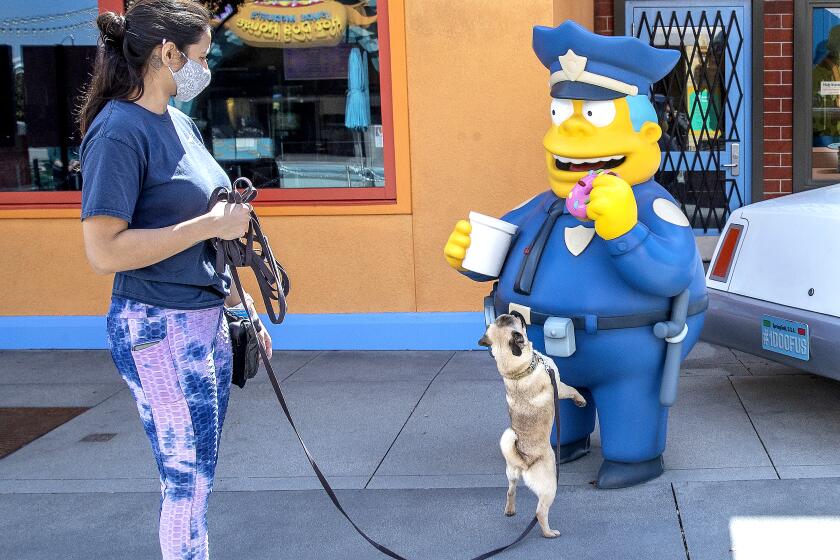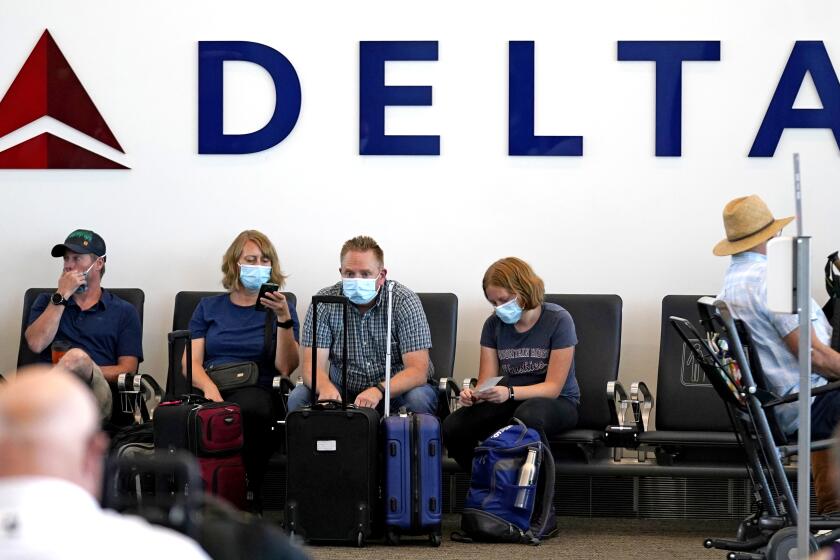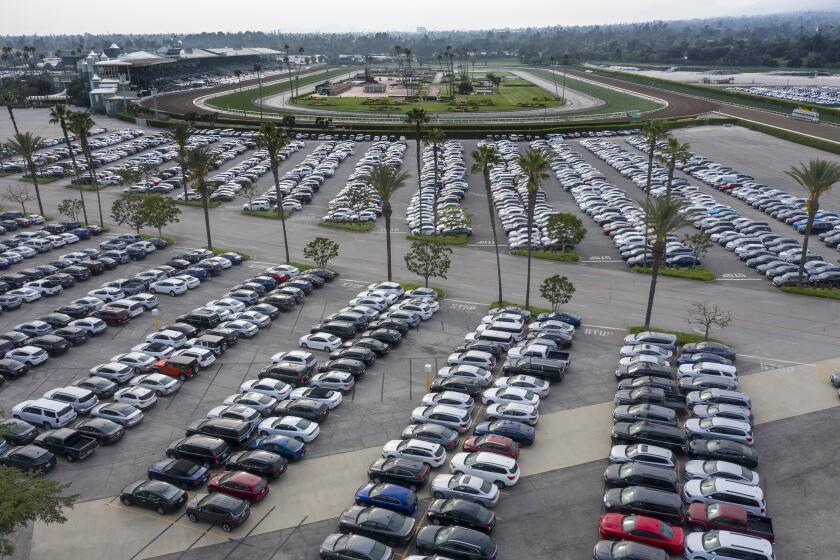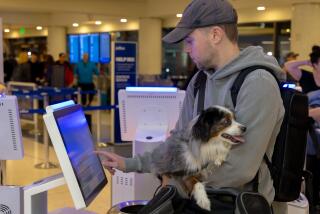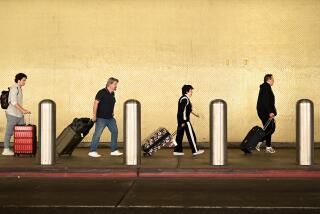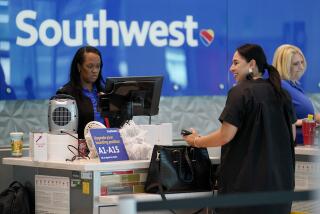Americans fearful of holiday travel are sticking closer to home

- Share via
The Delta variant-fueled wave of the coronavirus seems to have left its mark on would-be U.S. travelers.
Despite half of the nation now being vaccinated and data showing sky-high infection rates starting to fall, the “rabid demand for travel” seems to be dissipating, according to market research firm Destination Analysts. The group has been surveying around 1,200 Americans about travel throughout the pandemic.
While airlines foresee a fully booked holiday season, a majority of travelers surveyed said the latest wave has made them less interested in getting away, according to the company’s latest survey, conducted Sept. 29 to Oct. 1.
More than 68% of those polled did say they were planning or considering a trip — but that’s down from 78.7% in June. The share of people in what the research firm called a “ready-to-travel state of mind” — meaning they’re already traveling or ready to do so — also declined during that period.
“Americans do look like they are pushing travel plans,” Destination Analysts Chief Executive Erin Francis-Cummings has said. In recent weeks, “sentiment appears to have stabilized, albeit at levels below where we were in early summer 2021.”
The new requirement, outlined in an L.A. County health order, starts Oct. 7 and will be in effect during the busy weeks leading up to Halloween.
More than 23% of respondents said they had canceled an upcoming trip due to the COVID-19 pandemic and the threat of the Delta variant, and almost 27% postponed travel for the same reason. The share who reported having any travel plans for October and November has also dropped, though there have been some gains for December, Francis-Cummings said.
Hopper, a data company that makes algorithm-based personalized travel recommendations, projected in its most recent forecast that the number of passengers going through U.S. airport checkpoints will be about 75% of 2019 levels for Thanksgiving and 80% for Christmas.
That said, figures for both dates are expected to be roughly double those of the same time in 2020, when the worst of America’s infection waves gripped the country.
With two-thirds of travelers expecting COVID-19 to remain a concern for the next several years, many would-be vacationers are finding nontraditional ways to safely see loved ones in person or simply to get away for the holidays. That’s a big change from 2020, when people hunkered down and held virtual “Zoomsgiving” celebrations and small, distanced gatherings for major year-end occasions — if they got together at all.
Airlines don’t share the names of passengers who are banned for unruly behavior. Delta wants to change that, starting with its 1,600-name no-fly list.
This year, short-term rentals are white hot, in part because they give people the chance to travel while avoiding crowded terminals, hotels and of course airplanes. The trend is an echo of travel patterns that emerged during the summer of 2020, when cross-country drives and recreational vehicle rentals became popular.
Thanksgiving short-term rental reservations in the U.S. are up a tremendous 302% compared with last year, and 93% from 2019, according to figures compiled by property management software company Guesty. Prices have risen accordingly, climbing 19% from a year ago and 58% from pre-COVID-19 times. The company also said that 93% of reservations across the U.S. have been created by domestic travelers, compared with 80% in 2020 and 72% in 2019.
Christmas is proving even more competitive, with volumes jumping 469% versus 2020 and 157% compared with 2019. Rates are running 53% and 80% higher, respectively. It probably will be the most expensive holiday in the U.S. this year, the company said.
An ongoing chip shortage has reduced new car inventory, resulting in a rental car shortage that has made travel more difficult and more expensive. Expect a rental car that might be older -- if you can find one at all.
“Travel priorities have changed over the past year, and Americans are willing to spend more time and money over the holidays with family and friends after nearly two years of canceled or cautious holiday gatherings,” Guesty Chief Operating Officer Vered Schwarz said.
The pandemic has made short-term rentals popular for many looking to escape crowds or work remotely in new locales, Schwarz said. Reservation volume has increased month over month in the last year, and property management companies are “consistently at full capacity,” she said. It’s especially acute outside of urban areas in mountain, desert and oceanside towns. Lodging rates overall have gone up this year, according to Expedia.
“Consumers are noticing that vacation rentals are being snapped up, resulting in them booking stays further in advance for the holidays,” Schwarz said.
For those looking further out, short-term rental rates for New Year’s Eve are running around 23% higher than in 2020 and two years ago — less of a sticker shock than for Thanksgiving and Christmas. But that might change as December approaches and more people cement their plans.
Moreover, there might be competition from abroad given that, starting around November, the U.S. will allow in most foreign air travelers as long as they’re fully vaccinated. On Hopper, bookings for inbound round-trip flights from Europe jumped 160% the day of the announcement, according to the company.
— Bloomberg writer Justin Bachman contributed to this report.
More to Read
Inside the business of entertainment
The Wide Shot brings you news, analysis and insights on everything from streaming wars to production — and what it all means for the future.
You may occasionally receive promotional content from the Los Angeles Times.
